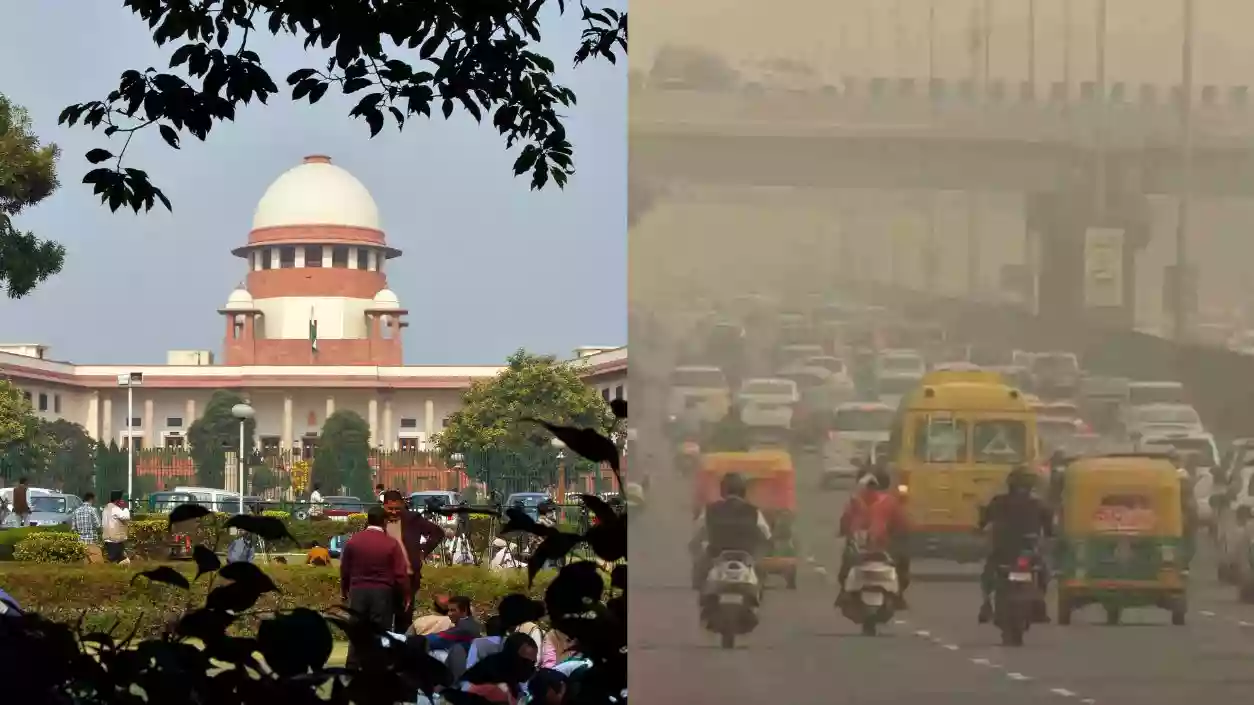.gif)
.gif)

On Monday, the Supreme Court of India summoned the Delhi government and the Delhi police to provide explanations regarding the ineffective enforcement of the firecracker ban during the recent Diwali festival, amid a critical air pollution crisis affecting the national capital. This inquiry was initiated following numerous reports that highlighted widespread violations of the ban, which was put in place to address the deteriorating air quality typically exacerbated during the festive season. The ban, implemented as part of efforts to control pollution levels, had specific guidelines aimed at limiting the use of firecrackers, particularly in light of the serious health impacts associated with poor air quality.
Following the celebrations on November 1, the air quality in Delhi worsened significantly, with the System of Air Quality and Weather Forecasting and Research (SAFAR) recording alarming data. On November 2, the air quality index (AQI) indicated 'severe' levels in various areas of the city, with particulate matter (PM2.5 and PM10) concentrations exceeding safety limits established by the World Health Organization (WHO) by as much as seven times. According to SAFAR, the PM2.5 levels reached as high as 500 micrograms per cubic meter in some locations, a figure that poses serious health risks, particularly to vulnerable populations such as children, the elderly, and those with pre-existing health conditions.
In light of these developments, the Supreme Court emphasized the necessity for stronger enforcement measures to ensure adherence to the firecracker ban. The court recommended specific actions such as the sealing of premises owned by individuals or entities found violating the ban, along with potential penalties to deter future violations. The court's remarks underscored the importance of implementing robust strategies to manage pollution, particularly during high-risk periods like major festivals when air quality typically declines.
Furthermore, the Supreme Court sought to address the broader issue of air pollution in the region by requesting information from the governments of Punjab and Haryana regarding the increase in stubble burning during the Diwali period. Reports from the Centre for Science and Environment indicated that the practice of burning agricultural residue has surged in recent years, contributing significantly to the overall air pollution crisis in Delhi. The Supreme Court aims to investigate the extent to which agricultural practices in neighboring states impact urban air quality and public health in the capital.
The Supreme Court has directed that all parties involved—including the Delhi government, Delhi police, and the governments of Punjab and Haryana—submit their detailed responses within one week. A follow-up hearing is scheduled for November 14, during which the court will review the responses and assess the actions taken by the relevant authorities.